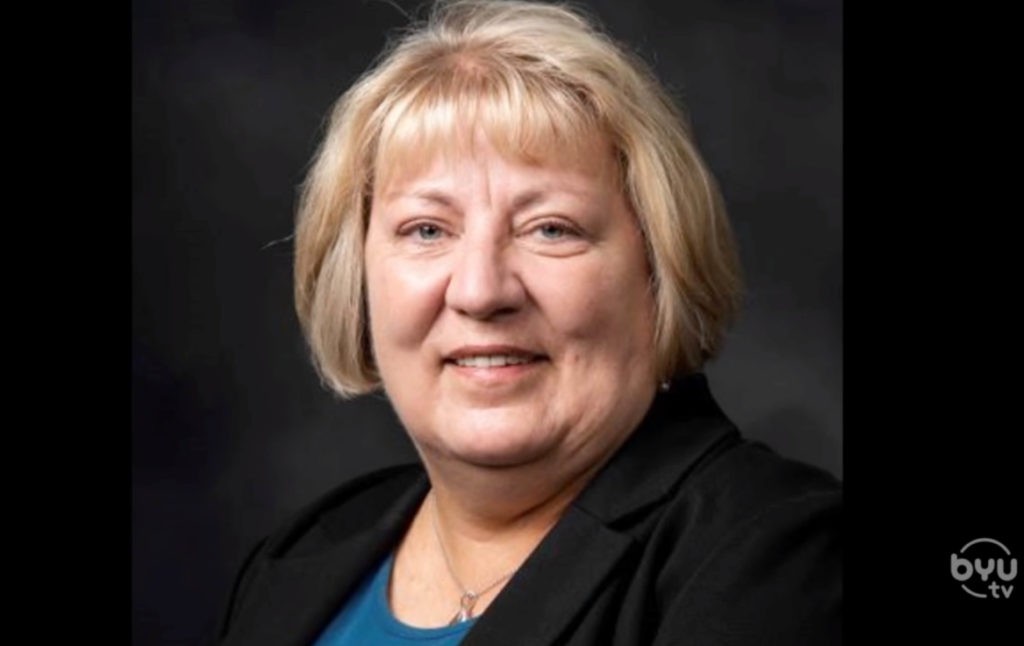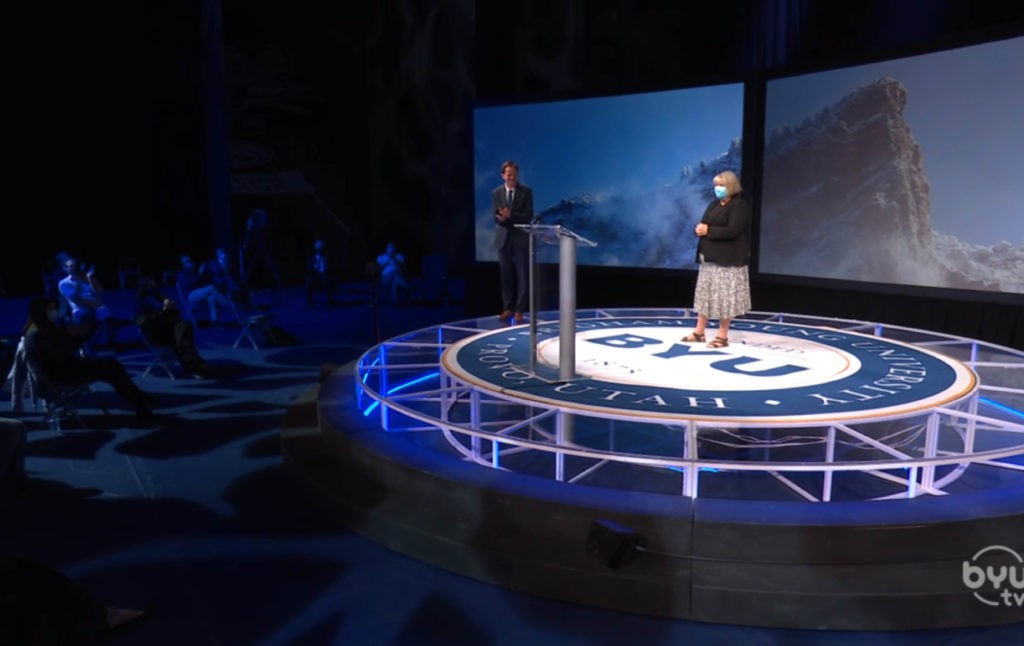
BYU awarded professor Ramona Hopkins the Karl G. Maeser Distinguished Faculty Lecturer Award for 2019-20.
Hopkins highlighted “unexpected” lessons she learned from her years in neuroscience research in her acceptance speech on Dec. 3. “Little did I know where that first study would lead me,” Hopkins said.
Now the director of the Neuroscience Center at BYU, she said curiosity, mentorship and benefitting from new opportunities leads to unexpected discoveries and accomplishments. “Take advantage of the opportunities that come your way. You never know where they will lead you.”
She said being curious leads people to ask questions which leads to discoveries being made. Hopkins related her initial research on carbon monoxide and how it evolved into larger research and greater discoveries being made on cognitive impairment.
Praising her mentor Erin Bigler, she said he lived by the motto, “Do as much good as you can, to as many people as you can.” Hopkins said this taught her to be a caring and engaged professor and to always seek new ways to improve.
“Do good. Share your expertise. Help others,” she said.
Hopkins became interested in neuroscience research after her son suffered a brain injury due to lack of oxygen. As she tried to help her son and understand more about his condition, she realized there was minimal science relating to cognitive impairment from respiratory diseases and subsequent rehabilitation.
This led Hopkins to further her education and professionally study the outcomes of those who suffer acute respiratory distress syndrome, anoxia and other respiratory disorders that can adversely affect the brain.

Hopkins described many of the studies she completed over the years. All of them built off each other, focusing on outcomes of patients who suffer critical illness. She studied factors that affect patients’ quality of life after being released from the hospital. These factors ranged from psychological, emotional, financial and physical to cognitive, mental and familial effects.
She said when she started her research, there were only a handful of researchers looking at outcomes of critical illness. Since she took on this research, “the field has exploded,” and hundreds of studies are now being published each year.
Much of Hopkins’ research has been applicable to the effects of COVID-19. Although little is known yet about the long term effects of the coronavirus, she said research on cognitive impairment from respiratory illnesses is being studied to try to understand the virus’s impacts on patients.
She said current research suggests individuals with severe respiratory illnesses, including COVID-19, are at risk to develop cognitive impairment or other new significant morbidities.
Hopkins said an important lesson she learned is the implications of work may not be apparent for years. Even though the effects won’t be seen at first, she said it is important to continue to ask questions and research issues that are affecting people.
Hopkins said she is grateful for the professors, mentors, colleagues and friends over the years who helped her get to where she is today and supported her work. “While I have been successful in research, the success could not have happened without the exceptional students who worked in my lab and the many colleagues and collaborators I have been privileged to work with over the years.”
The Distinguished Faculty Lectureship is one of the most prestigious awards and highest honors given to a BYU faculty member.
Hopkins’s lecture was originally scheduled for June 2020 but was rescheduled due to the COVID-19 pandemic. Her speech will be broadcast again as a forum on Jan. 5 on BYUtv.




